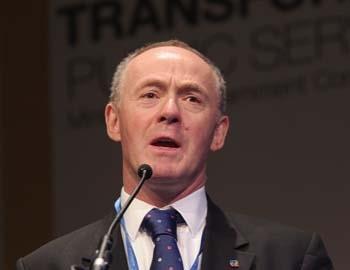This month: A2’s private deal, supercasinos, EP funding, house prices, rich/poor divide, and more
Affordable housing provider A2 Housing Group is poised to smash the private-public sector housebuilding divide by acquiring a regional private housebuilder. The registered social landlord is in negotiations to buy a housebuilder operating close to but not within its London and Home Counties operating area, and hopes to announce its acquisition in the autumn. The company already has a maket sale operation, called A+, that it launched a year ago. This is not A2’s first bid to buy a housebuilder: it tried to buy Linden Homes last year but lost out to Galliford Try. Last March A2 announced that it was in merger talks with Dominion Housing Group. Successful merger would give the combined player a development pipeline of 7,000 homes.
Prime minister Gordon Brown appeared to veto the prospect of a supercasino being developed in the UK with his announcement earlier this month that the decision will be reviewed. But Manchester council, which had been set to have the first supercasino, remains hopeful. Council leader Sir Richard Leese said: “The council has had discussions with senior ministers and has been assured that the proposed destination casino at Sportcity remains on the table.” The government is to publish a report on gambling in the UK in September.
The impact of buy-to-let and second homes on house prices and the housing market is one of three subjects to be researched in the new National Housing and Planning Advice Unit’s (NHPAU) first research programme. The NHPAU will also look at the consequences of worsening affordability on demand for social housing, and assess the impact of infrastructure constraints on housing supply. The latter will include looking at the impact of the Environment Agency and Highways Agency in facilitating delivery. The choice of subject matter for the programme follows a conference highlighting areas of potential research last month.
English Partnerships chief executive John Walker said as much as 77% of the agency’s 2007/08 programme could be funded from land sales. In the past year, land sales funded 64% of its £586m programme. Speaking at the release of the agency’s national report, Walker said he “is not expecting a big hand-out from government in the upcoming Comprehensive Spending Review” and that alternative investment routes are being explored. He added: “Local asset-backed vehicles could be a big growth area. I would like to see more than one happen in this financial year”. EP is in talks with a number of local authorities, including Manchester, Birmingham, Sunderland and Coventry to create the first local authority asset-backed vehicle, which would use local authority land and property to deliver housing and regeneration.
Britain’s rich and poor are now living further apart, according to a report published by the Joseph Rowntree Foundation this month. Despite the government’s urban regeneration efforts, urban clustering of poverty has increased, while wealthy households tend to live in the outskirts of major cities. In areas of some cities more than half of all households are now “breadline poor”. The report, Poverty and wealth across Britain 1968 to 2005, notes: “There seems to have been little progress in reducing geographical polarisation since 2000.”
HBOS is increasing its stake in housing and regeneration. HBOS has acquired an 11.9% stake in Quintain to add to an existing shareholding and was rumoured to be preparing to make a bid as Regenerate went to press. In the same month housebuilder Gladedale, which is backed by HBOS-owned Bank of Scotland, has made an offer to buy Yorkshire housebuilder Ben Bailey. In its annual results, published this month, Gladedale announced a pre-tax profit of £85.2m on a turnover of £664m and developed 3,854 homes last year.
Source
RegenerateLive


















No comments yet